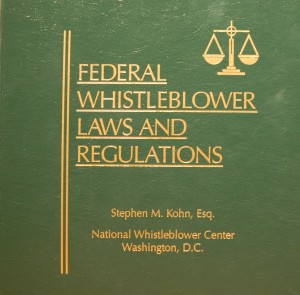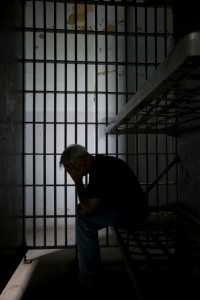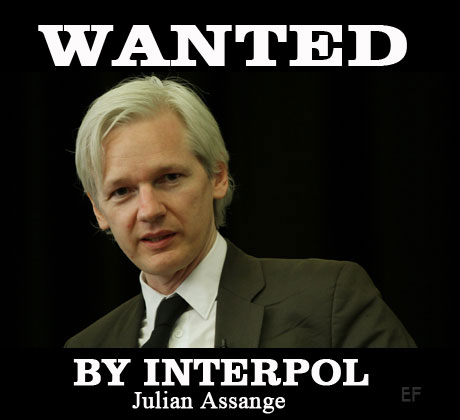Resurrecting a Ninety Year Old Behemoth
Deception weaves a very tangled web and nobody has learned this better than those who have attempted to hide behind the policies of International affairs in order to conceal unlawful activities. While Julian Assange remains out on bail, a furor erupts over whether or not he committed a legal infraction, and the unlawful activity of freezing his bank accounts and assets are quietly shifted into the background. While International courts scrutinize Wikileak documentary to determine whether Assange could be tried as an informant against the US Government for publishing classified information, assumed whistle-blower, Bradley Manning, remains in solitary confinement, after seven months in jail; charged with releasing secret documents but convicted of no wrong doing.
Public analysts for important political figures have discovered that the best way to extract yourself from a scandal is through a Hegelian Dialectic; the tactic of creating an issue to distract from the larger one; or in plain layman’s language, throwing sand in the eyes. Recent rumors suggest that Bradley Manning has been offered a deal. According to Ian Dunt of Politics.co.uk., the soldier allegedly responsible for passing on confidential information to Mr Assange, was offered a plea bargain if he names the Australian as a fellow conspirator.
“We have heard today from one of my US lawyers that there may be a US indictment for espionage for me coming from a secret grand jury investigation,” the Wikileaks founder told Sky News.
“There are obviously serious attempts to take down the content by taking us down as an organisation and taking me down as an individual.”
Further rumours, according to Dunt, suggest that a grand jury has been secretly assembled in Virginia to consider an indictment.
It is thought that authorities would struggle to extend the use of the Espionage Act 1917 or the Computer Fraud and Abuse Act 1986 from Pte Manning to Mr Assange, as it would come up against the firmly entrenched rights to free speech in the US Constitution.
Without any evidence of him having instigated Pte Manning’s activities, Mr Assange would be under a similar legal category as the New York Times, experts say. The thought of a legal fight with the newspaper would be unthinkable for the White House.
The conservative media has been very unsympathetic in its coverage of Bradley Manning. A friend of who; according to “The Lid”; was a friend of “information thief, David House, a computer researcher who visits Manning regularly, that Bradley may be losing his cognitive skills due to the stress of his solitary confinement. Snickering at the reported phrase, “poor baby”, The Lid feels Manning deserves a a court martial and up to 52 years in prison for his role in the WikiLeaks distribution, and probably extra time because he smuggled the data out via a Lady Gaga CD.
According to The Lid, “Part of a dedication to human ethics is a dedication to the rule of law. Who the hell is Manning, to have decided on his own what could be released safely and what could not? That’s what the freedom of information act is for. If Manning was truly interested in “human ethics,” instead of passing along the documents, he would have told his friends to file freedom of information requests for certain documents. He could have even given them general directions of what to ask for. If the State Department refused they could have filed a lawsuit and let a judge decide.”
There is very little chance that the State Department, or even the courts of the United States would have cleared Manning’s information for publication. Nor has any journalist or informant ever received clearance from a court first before publishing documented proof of their story. Once again, the opposition to the Wikileaks foundation has taken refuge in legalities instead of lawful moral and ethical considerations.
Selective Prosecution
Wikileaks has not published information that could potentially harm the well-being of the general public. It hasn’t even published anything that a great many people had not already suspected and had conveyed to each other via Internet connections. It has only published the evidence that confirms these suspicions. Activists in Iraq and Afghanistan had already disclaimed the military abuse of civilians before the damaging tapes were presented of helicopter air strikes.
David Edwards and Danial Tenoir, of “The Raw Story” argue that there isn’t anything that the U.S. could charge Julian Assange with without charging The New York Times as well. The founder of WikiLeaks and the US’s pre-eminent major daily both basically did the same thing: They published confidential State Department cables allegedly stolen by Pfc. Bradley Manning.
However, Michael Mukasey, President George W. Bush’s last attorney general, the matter is clear cut: The US should prosecute Assange because it’s “easier” than prosecuting a major news outlet. Said Mukasey, “The distinction I’m drawing is that it is easier, from a policy standpoint, to prosecute Assange. There’s a clearer case with respect to Assange. With regard to the Times, I think, just as a matter of discretion, I would hold back.”
Mukasey said he would like to see Assange prosecuted under two clauses of the 1917 Espionage Act, “one of which criminalizes the publication of defense-related information, and the other of which criminalizes the publication of classified information.”
Wall Street Journal’s Paul Gigot, pointed out that there has never been a prosecution under the 1917 Espionage Act, and that the Supreme Court has never ruled on its constitutional validity. Mukasey, who described the law as “an oldie but goodie,” was confident that the Supreme Court would uphold it as a reasonable limitation on freedom of speech.
Iceland Thaws Wikileak’s Frozen Assets
This reasonable limitation of free speech would probably never have brought to the surface the guilt behind the perpetrators of the Icesave scandal. In an August 9th, 2009 article, Iceland announced Wikileaks had made the nightly news by revealing documentation of the Kaupthing reports. Two days later, Herdis Sigurgisdottir of Associated Press announced from Reykjavik, Iceland – “A court in Iceland lifted a gag order Tuesday that allowed Kaupthing Bank to prevent media coverage of a leaked file that discloses details of the bank’s weak position shortly before it collapsed in October.
The Reykjavik district magistrate lifted the order only hours after Kaupthing itself yielded to public pressure to stop pushing for the ban. The injunction had forbidden further coverage of a risk analysis report that had been leaked via the WikiLeaks whistleblower Web site.”
Jon Jonson of Slashdot wrote of August 2nd of the year, “Information from the collapsed Icelandic bank Kaupthing has been leaked to WikiLeaks, revealing billions in insider loans, and the bank has been working day and night to censor the information contained in the document. Last night at 6:55pm GMT, they served an injunction against the Icelandic National Broadcasting Service, five minutes before the 7pm news was due to be aired. The TV station just displayed the WikiLeaks URL instead. They’ve also injuncted Iceland’s national radio, banning all discussion about the contents of the document, and they are actively trying to censor the rest of the Icelandic media along with WikiLeaks.”
Several months later, Wikileaks again published confidential information concerning the negotiations between Iceland and their financiers in London and Holland, in a January 13th 2010, dispatch between the Amembassey Reykjavik and the United States Treasury. The country urged the United States to be supportive of Iceland in its attempts to renegotiate a fair loan payment plan with lowered interest rates, while the response of the US Treasury was that it felt is was wisest to remain neutral. The two officials, Gunnarsson and Burgess responded that they understood the United States’ stated position of neutrality on the issue; however, they expressed the view that it was impossible to remain neutral regarding the Icesave matter. Iceland, they said, was being bullied by two much larger powers and a position of neutrality was tantamount to watching the bullying take place. They suggested that a public statement from the U.S. in support of Iceland
would be very helpful. They also felt that U.S. intervention in the IMF could be of assistance, specifically if it was targeted at getting Iceland’s review placed on the IMF agenda. Gunnarsson acknowledged that U.S. support during the review was appreciated but, realistically, the issue would never make it on the agenda unless external pressure was applied on the IMF.
External pressure was never applied. On June 16th, Iceland announced that it says yes to Wikileak law. Iceland’s government and parliament, the Alþing, voted for the Icelandic Modern Media Initiative (IMMI), a law co-developed with whistleblowing website Wikileaks. The law is posed to turn Iceland into a press haven for journalists worldwide, as it is combines best-practice legislation from around the world in a legislative package designed to protect sources and whistleblowers.
The victim of an International crime had suddenly become the defender of the Wikileaks foundation. Earlier this month, France was introduced to an online web site with a game called, Wikileaks. After only a few days of being online, millions of people had played the game, making it an instant hit. The game was designed by Icelander, Thorir Aron Stefansson and his Dutch colleague, Sebastiaan Moeys. In WikiLeaks: The Game, the player assumes the role of WikiLeaks founder Julian Assange hiding behind President Obama’s desk. The player must then manipulate the Assange character to smuggle secret documents from Obama’s laptop onto a USB drive as the president falls asleep.
Moeys said, “We didn’t plan for this to be a smash hit. We created it as a sort of joke, a social commentary on a developing story.” According to Moeys, the WikiLeaks game has been so popular that the site’s servers have been under strain. “We had a really difficult time keeping everything online,” added Moeys.
According to DV, the WikiLeaks game has received international attention with news websites such as CNN, CNBC Wall Street Journal and other major media covering the story.
Iceland has also taken on the giant credit card companies. In a December 12th publication of the Democratic Underground, a news bulletin declares, “Representatives from Mastercard and Visa were called before a parliamentary committee to explain the credit companies’ refusal to process donations to the whistle-blowing website Wikileaks.
“People wanted to know on what legal grounds the ban was taken, but no one could answer it,” said Robert Marshall, chairman of Iceland’s allsherjanefnd, according to the Reykjavik Grapevine.
Vidar Thorkelsson, CEO of Valitor, which operates Visa and Mastercard in Iceland, said the Icelandic branch had nothing to do with the decision.
Meanwhile, DataCell, the Icelandic-Swiss web host is reporting that donations to Wikileaks have increased in recent days, despite the actions of Mastercard and Visa. The web host has been processing direct bank transfers to help facilitate the donations.”
A tiny country is big in heart, makes US seem shriveled in comparison.
Quote from Democratic Underground
The attempts to stifle Wikileaks have been shabby, filled with unveiled threats and liberally sprinkled with cloak and dagger tactics. On June 6, Kevin Poulsen and Kim Zetter of Wired reported that U.S. Army Private in Iraq, Bradley Manning, had been detained after he “boasted” in an Internet chat — with convicted computer hacker Adrian Lamo — of leaking to WikiLeaks the now famous Apache Helicopter attack video, a yet-to-be-published video of a civilian-killing air attack in Afghanistan, and “hundreds of thousands of classified State Department records.” Lamo, who holds himself out as a “journalist” and told Manning he was one, acted instead as government informant, notifying federal authorities of what Manning allegedly told him, and then proceeded to question Manning for days as he met with federal agents, leading to Manning’s detention.
On June 10, former New York Times reporter Philip Shenon, writing in The Daily Beast, gave voice to anonymous “American officials” to announce that “Pentagon investigators” were trying “to determine the whereabouts of the Australian-born founder of the secretive website Wikileaks [Julian Assange] for fear that he may be about to publish a huge cache of classified State Department cables that, if made public, could do serious damage to national security.” Some news outlets used that report to declare that there was a “Pentagon manhunt” underway for Assange — as though he’s some sort of dangerous fugitive.
The Hegelian Dialectic is not working this time. In order for the US Government to prosecute Bradley Manning, it must first acknowledge complicity and cover up in the murder of innocent civilians. In order for the US Government to pursue charges against Julian Assange, based on a ninety year old, never before practiced mandate, it must first drop all pretenses of representing a democracy upholding basic human rights, which include freedom of press and freedom of speech. It must live with its lies and live with the fact that we know it is lying. The web is tangled, but the weavers are not invisible. They leave a trail of evidence in broken lives, bankrupt countries and political persecutions. While the militant propaganda machine of the conservative right lifts a heavy hand to throttle the voices of civil liberties, the rest of the world will be watching. It has already seen the failure of America to stabilize its economy. It has seen the failure of America to provide its inhabitants with adequate health care. It has seen the failure of America to use non-invasive policies in International affairs. It might yet also witness America’s failure to protect freedom of speech. What is legal is not always lawful. What is lawful, we should always remember as guardians of truth for a humanitarian society.
http://news.cnet.com/8301-31921_3-20026074-281.html
http://www.rawstory.com/rs/2010/12/mukasey-prosecute-assange-easier-times/
http://enigmafoundry.wordpress.com/2009/08/02/wikileaks-makes-news-in-iceland/
http://www.techeye.net/internet/iceland-says-yes-to-wikileaks-law
http://www.icenews.is/index.php/2010/12/20/icelander-makes-hit-computer-game-about-wikileaks/
http://www.democraticunderground.com/discuss/duboard.php?az=view_all&address=102×4655516
http://www.salon.com/news/opinion/glenn_greenwald/2010/06/18/wikileaks


[…] This post was mentioned on Twitter by computer case, Refugee Reporter. Refugee Reporter said: Update – http://subversify.com/2010/12/24/the-deception-of-us-law-in-the-curious-case-against-julian-assange/ […]
[…] loans to nonprofit executives and board members are an area where there have been e more… The Deception of US Law in the Curious Case Against Julian Assange – Subversify – subversify.com 12/24/2010 SubversifyThe Deception of US Law in the Curious Case Against […]
karlsie, nice job, very infomative, thankyou for for the posting.
What a shameful story, but indeed, great coverage Karlsie. I’m glad that people like you are staying on top of this story and showing what rotten eggs the US government is turning out to be. People really don’t change…and the United States never stopped being the McCarthyistic, bully, power-hungry monster that it was has been since the mid 20th century.
Laurie, thank you for your feedback. While my viewpoint isn’t always agreeable to American flag wavers, i’ve never been an advocate of “my country, right or wrong”. If the country is wrong, we have the tools within our Constitution to fix it and make it right. To do otherwise, we are traitors to the precepts visualized and laid down by our forefathers.
Mitch, any story that gets shuffled into the back corners of mainstream media wakes my watch dog instincts. While i was just a little too young for the Vietnam War and the Civil Rights movement to have a strong effect on me, Watergate certainly did. My father was an avid supporter of Nixon, until his dirty laundry was put out on display. When Woodward and Bernstein began publishing the Watergate documents and the significance of the affair marched into public view, his belief in the US Government as a noble and fair acting institute, shattered. His belief in the power of the vote dwindled. He sought and gained retirement from his high ranking job with the civil service, a full six years early. He never again showed a strong interest in politics.
I think it’s significant that the McCarthy era has been downplayed quite a bit in recent years. His reign of power would have continued indefinitely if the press had not stepped up to the plate to denounce his actions. I don’t take a great deal of interest in personal skeletons lurking in the closet unless those skeletons have an effect on society. In this case, the skeletons that might be lurking in Assange’s closet are very minor compared to those within the U.S. Government. America has the right to know why our youth are being sacrificed overseas. It has the right to know how the monetary interests of major banks and corporations have affected the global economy. It has the right to know how devious and subtle policies are affecting the freedom of press. If America shrugs its shoulders and says it doesn’t care, it has just surrendered its most powerful weapon into the hands of tyranny.
Keep it up Julian Assange – no-one else has exposed as much deceit.
You’ve come too far to surrender to the demands of the lunatic republican fringe!
[…] and secretly practiced by a government that doesn’t want its citizens to know all the facts. As Julian Assange receives a rare peace prize from Australia for conscientious journalism, the US Government wants to […]
[…] secretly practiced by a government that doesn’t want its citizens to know all the facts. As Julian Assange receives a rare peace prize from Australia for conscientious journalism, the US Government wants to […]
[…] was pressuring Congress to double the punishment for those found guilty of compromising national security. If the new legislation is passed, breaking into a US government computer could earn a culprit a […]
Hello! I just would like to give a huge thumbs up for the great info you have here on this post. I will be coming back to your blog for more soon.
[…] payment negotiation with the banks, and has even appealed to the U.S. for support, according to Wikileaks documents. Ireland would probably like to do the […]